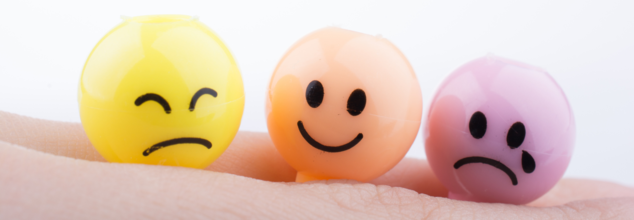
Credit: Canva
Your Gut Is Ruining Your Sleep-Here Are 6 Ways To Fix It
If you are struggling to sleep, then you might blame stress, anxiety or any physical pain for it. However, research has discovered that the condition of your gut could be responsible. They have underscored that the gut and brain are deeply connected. Poor gut health can be a major contributor to sleep disturbances.
Sam Tejada, author of 'How to Win in Modern Wellness', speaking to a leading media organisation, said that while digestive issues like bloating or acid reflux can obviously keep you up, however, an imbalanced gut can cause chronic inflammation, stressing the nervous system and making it harder to wind down at night.
"About 90% of serotonin, which converts into melatonin, is produced in the gut. If the gut is unhealthy, it can impact nutrient absorption and disrupt both serotonin and melatonin production," he said. These disruptions may throw off circadian rhythms, and prevent the body from getting deep, restorative sleep. Inadequate sleep, in turn, can have far-reaching consequences—ranging from cognitive issues and poor immunity to elevated risk of heart disease, diabetes, depression, and chronic inflammation.
ALSO READ: World Tuberculosis Day: Can This Condition Spread To Your Breasts?
Tajeda Suggested Six Practices To Bolster Gut Health And In Turn, Sleep
1. Increase Fiber Intake"Get more fibre from fruits, vegetables, and prebiotic foods like garlic, onions, and asparagus," said Tejada. Fibre supports digestion and helps feed beneficial gut bacteria. Despite its many benefits—from lowering cholesterol to stabilizing blood sugar—most people don’t consume the recommended daily amount.
2. Add Probiotics
Probiotics, found in fermented foods and supplements, can help balance the gut microbiome, reduce inflammation, and boost serotonin production. Tejada recommends choosing a quality probiotic tailored to individual needs.
3. Cut Back on Processed Foods and Sugar
Limiting processed foods and added sugar can reduce gut inflammation and promote better sleep. A 2023 study found that diets high in sugar and saturated fats were linked to poor sleep quality and reduced slow-wave sleep.
4. Stay Hydrated*
"Hydrate and consume electrolytes to aid digestion and promote relaxation," advised Tejada. Water is essential for all bodily functions, including digestion. While needs vary, experts often recommend around eight 8-ounce glasses of water per day—or more, depending on body size and activity level.
5. Avoid Late-Night Eating
Eating late, especially heavy or greasy meals, can interfere with sleep and digestion. Research shows that late-night eating is linked to obesity and even a higher risk of stroke. Experts suggest finishing dinner between 5 p.m. and 7 p.m. to align with natural circadian rhythms.
6. Consider a Functional Health Report
“A functional health report can identify biochemical imbalances in the gut and offer personalized strategies for repair,” Tejada said. These reports synthesize lab test results to offer a detailed look at gut and nutrient health.
With growing research linking gut health to a wide range of conditions—from Parkinson’s to early-onset colon cancer—paying attention to what’s happening in your belly could be a smart move not just for better sleep, but for overall well-being.
ALSO READ: Tamim Iqbal Suffers Heart Attack-Can It Be Possible To Predict It Beforehand?

(Credit-Canva)
Waking Up From A Nap? Ways You Can Get Rid Of Grogginess
Taking a nap on a lazy afternoon feels like bliss, but it can disrupt your sleep cycle. Many people expect to feel refreshed after a nap, but that is not the case all the time. When you wake up from a nap and feel more tired than before, that’s sleep inertia. You are basically restarting your brain. Think of it as your brain slowly booting up like a computer. This grogginess is normal because your body is moving from a resting state to an active one. Everyone experiences this, your body takes some time to warm up and take in all the surroundings.
Grogginess after a nap usually lasts about 15-60 minutes after you wake up. So, avoid doing anything that needs quick decisions or sharp focus, like driving. Just give yourself some time to fully wake up before you start your day. You already do this when you wake up in the morning, so taking a nap and going through this process all over again can be difficult.
Is Napping Beneficial?
Napping may not be everyone's cup of tea, but it can be helpful. If you’re feeling sleepy during the day, a short nap can make you feel more alert. Naps can also help you get enough sleep, especially if you didn’t sleep well at night. They can even improve your memory and help you learn better. However, if you have trouble sleeping at night, naps might make it worse. If you nap during the day, you might find it harder to fall asleep or stay asleep at night. So, if you’re already struggling with nighttime sleep, it’s probably best to skip naps. It’s all about finding what works best for your body.
Ways You Can Minimize Grogginess
For the best nap, keep it short, around 10 to 20 minutes. This will help you avoid falling into a deep sleep, which makes waking up more difficult. Set an alarm so you don’t oversleep. To make your nap more restful, create a quiet, dark environment. Use an eye mask and earplugs to block out light and noise. Remember, it takes time for your brain to fully wake up, so give yourself about 15 minutes to adjust after your nap.
Avoid the Snooze Button
Resisting the snooze alarm prevents fragmented sleep, which disrupts your natural wake-up cycle. This fragmentation increases grogginess, making it harder to feel alert and ready for the day.
Get Up Immediately
Rising promptly after your alarm helps your body transition from sleep to wakefulness. Physical movement, even simple stretching, signals your brain that it's time to be active, reducing lingering sleep inertia.
Consider a Caffeine Nap
Drinking coffee right before a short nap allows the caffeine to take effect as you wake. This timing aligns the caffeine's stimulating properties with your natural wake-up, leading to increased alertness post-nap.
Expose Yourself to Bright Light
Bright light, especially sunlight, suppresses melatonin, the sleep hormone. This exposure signals your brain to wake up, reducing grogginess and improving alertness more effectively than dim indoor lighting.
Wash Your Face with Cold Water
The shock of cold water stimulates your senses and increases blood flow to your face and brain. This physical jolt helps to quickly reduce feelings of sleepiness and promotes a sense of alertness.
Listen to Upbeat Music
Upbeat music increases heart rate and stimulates the brain, creating a more energetic state. The rhythm and tempo of the music can help to counteract the sluggishness associated with sleep inertia.

(Credit-Canva)
“Why Do I Feel Cold All The Time?” Reasons For Low Temperature Tolerance
Just how people have pain tolerance and taste tolerance, some might also have different cold tolerance. Feeling usually cold isn't a sickness itself, but it can signal an underlying health issue. It could be related to your thyroid, the part of your brain that controls temperature (hypothalamus), or how your blood flows. Conditions like anemia, hypothyroidism, fibromyalgia, or anorexia can also cause it.
Cold intolerance means you feel much colder than normal, not just a little chilly. You might complain about being cold when everyone else feels fine, and extra clothes might not help. Sometimes, only certain parts of your body, like your hands, feel very cold.
If you suddenly start feeling unusually cold, and it doesn't go away, see your doctor. They will figure out what's causing it and how to treat it. Here are some reasons why you could be feeling this way.
Dehydration
Your body needs water to stay at the right temperature. If you don't drink enough water, you can feel cold. Water helps your body hold onto heat. If you are dehydrated, you might also feel dizzy, have a dry mouth, and feel tired. To avoid this, drink plenty of water. You can also get water from fruits, vegetables, and soups.
Blood Sugar Conditions
If your blood sugar is too high for a long time, it can hurt the nerves in your hands and feet. This is called peripheral neuropathy. It can make your hands and feet feel numb, painful, and cold. Also, if your blood sugar gets too low, you can feel chills. So, it is important to control your blood sugar. If you have diabetes, see your doctor regularly.
Low Body Weight
If you are very thin, you might feel cold more easily. This is because your body doesn't have enough fat to keep you warm. Your muscles also help make heat. So, if you have low muscle mass you will also feel colder. If you are underweight, make sure you are eating a healthy diet.
Lack of Sleep
When you don't get enough sleep, it can mess up your body's temperature control. This can make you feel cold. Not sleeping enough can also hurt your metabolism. Try to get 7-8 hours of sleep each night. Make sure your bedroom is cool and dark. If you still have trouble sleeping, talk to your doctor.
Anorexia Nervosa
When someone has anorexia, they are very afraid of gaining weight. They might eat very little or exercise too much. This makes their body very thin. Because they have very little body fat, they get cold easily. They may also feel sad, have dry skin, and have trouble thinking. If you think someone has this problem, it is very important to seek out professional help.
Hypothyroidism
Your thyroid is a gland that helps control your body's temperature. If your thyroid doesn't make enough hormones, you can feel cold all the time. This is called hypothyroidism. You might also have dry skin, hair loss, and weight gain. If you have these symptoms, see your doctor. They can give you medicine to help your thyroid.
Iron Deficiency Anemia
Iron helps your blood carry oxygen. Oxygen helps your body make heat. If you don't have enough iron, you can feel cold. You might also have pale skin, brittle nails, and trouble concentrating. To get more iron, eat foods like beans, chicken, and fish. Your doctor can also give you iron pills.

(Credit-Canva)
Can Your Personality Trait Affect Your Health?
The way you act and certain traits that are unique to you, are what draw people to you. Whether it is the way you talk or meet people, or other mannerisms, your personality has a big part to play in how you are perceived. While your personality obviously has a lot of sway in your social life, there are many other ways it can affect your life.
Having a fun and inviting personality can be a bonus point for your personal and work relationships. People love interacting with you and generally enjoy your company. But could it also be a bonus point for your health? Personality and mental health go hand in hand, and there is research to prove so. Here are some ways ‘good’ personalities benefit you and ‘bad’ one negatively affect your health.
Optimism
If you're optimistic, you tend to see the bright side of life. According to a 2019 study published in PNAS this helps you live healthier and longer. Optimistic people have less inflammation in their bodies and healthier cholesterol. They also take better care of themselves by exercising and eating well. When you're sick, being optimistic helps you cope better and feel less stressed.
Conscientiousness
Being conscientious means you're organized, responsible, and careful. According to a 2013 Health Psychology study, people with this trait often live longer and are healthier. They make good choices, like exercising and eating healthy. They also go to the doctor regularly and follow their advice. This helps them recover faster from illnesses and feel less stressed.
Extroversion
Extroverts love being around people. According to a study published in the 2020 APA PsycNet, this social connection can help lower stress and inflammation. They tend to be more active and happier, which is good for their health. Even if you're shy, having close friends and family can keep you healthy. Staying active, even by yourself, can also help.
Openness to Experience
People who are open to new things are curious and creative. According to Social Psychological and Personality Science 2014 study, they're often happier and handle stress better. This leads to better physical health. Trying new things, like traveling or learning a hobby, can make you more open and improve your well-being.
Agreeableness
Being agreeable means you're kind and helpful. Berkeley Well-Being Institute explains that people with this trait have good relationships and less stress. They also tend to make healthy choices and handle stress well. If you want to be more agreeable, try being more compassionate and listening to others.
Negative Traits and Health Risks
Similar to how positive traits benefit our health, negative traits can trigger many issues. Many of these traits can arise due to mental health issues and you should not hesitate to reach out for help if you are going through them.
Hostility
If you're hostile, you're often angry and unfriendly. This leads to stress and isolation, which is bad for your health. High stress weakens your immune system and increases your risk of heart problems. Learning to control your anger and manage stress can help.
Neuroticism
Neurotic people worry a lot and feel anxious. This can lead to mental health problems and weaken your body. Constant stress from worrying can cause health issues. Learning to relax and think positively can help you feel better.
Emotional Suppression
Hiding your feelings can make you feel stressed and anxious. If you always bottle up your emotions, it can hurt your heart and weaken your immune system. It's important to find healthy ways to express your feelings.
Social Inhibition
If you're shy, you might avoid social situations. This can lead to loneliness and stress, which can cause health problems. Slowly facing your fears and getting help from a therapist can make you feel more comfortable around people.
Self-Centeredness
People who are self-centered only think about themselves. This can lead to loneliness and relationship problems, which cause stress. This stress can hurt your heart and immune system. Trying to be more kind and caring can help you feel better and have better relationships.
© 2024 Bennett, Coleman & Company Limited

